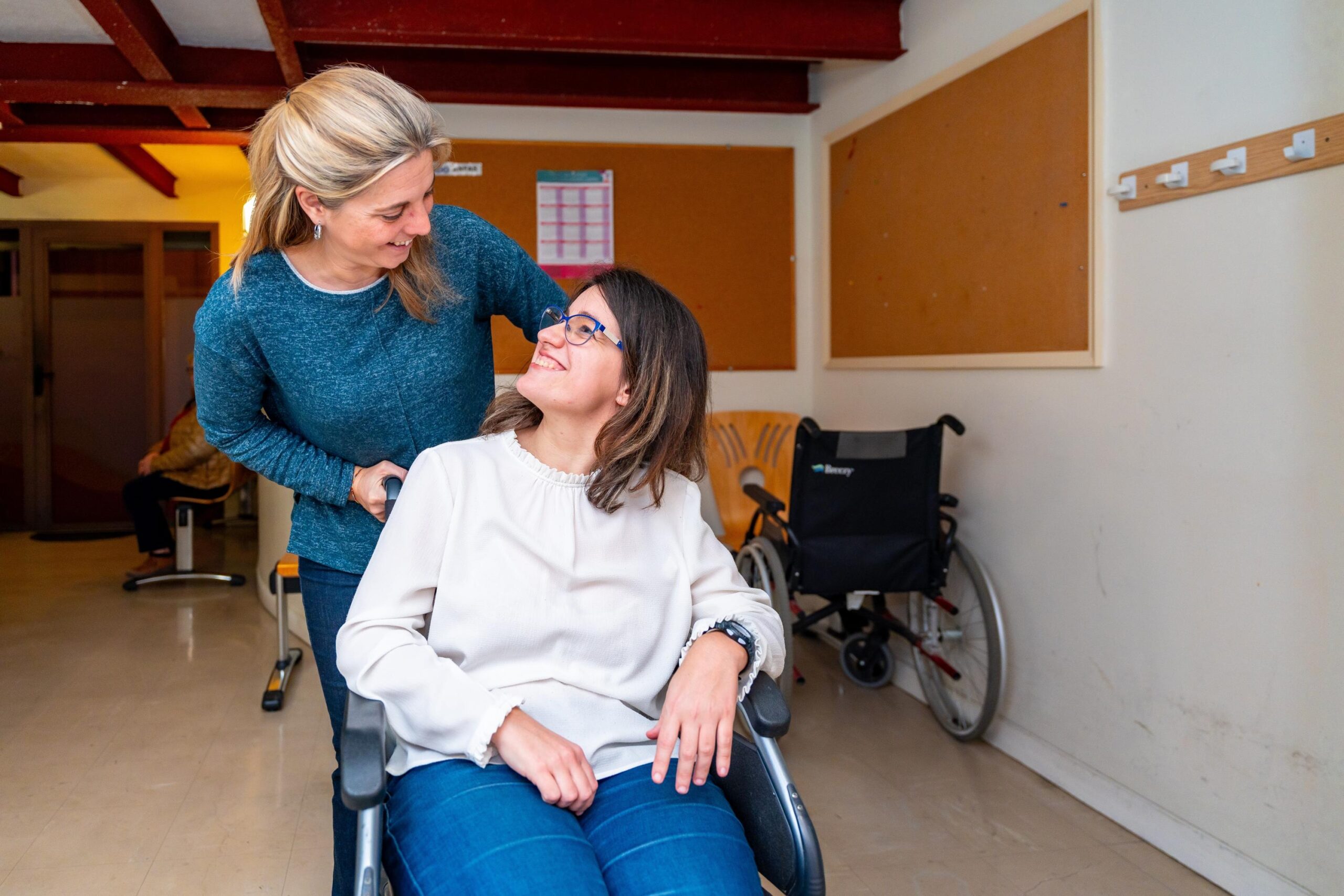
The National Disability Insurance Scheme (NDIS) is an Australian Government initiative that provides funding for people living with a disability to access the support they need to gain more independence and live a fulfilling life.
The NDIS provides funding through three key budget categories: Core Supports, Capacity Building Supports, and Capital Supports. For participants with PACE plans there is a fourth budget category: Recurring. Each category is designed to help you access different types of assistance. Let’s take a closer look at Core Supports and explore how you can use this funding to meet your needs.
What are Core Supports?
Your Core Supports budget is designed to help you manage your daily activities, meet your current disability-related needs, and work towards your goals—all to enhance your quality of life.
The NDIS understands that everyone’s journey is unique. That’s why the Core Supports budget is the most flexible of all funding categories. In many cases, you can use this funding across a wide range of supported areas, adapting it to your changing needs over time.
Here’s a closer look at the types of supports included in this category and how they can benefit you.
Types of Core Supports
When you receive funding for Core Supports, there are several ways you can use this funding. These categories include Assistance with Daily Life, Assistance with Social & Community Participation, Consumables, Transport, Home and Living (PACE plans only and Young people in residential aged care (YPIRAC) (PACE plans only).
Assistance with Daily Life
Daily Life supports are designed to help you complete everyday tasks such as personal care, meal preparation, and household chores. These supports can be provided in your home or in a community setting.
Some specific examples of Daily Life supports you may be able to use your funding for (based on your needs and goals), include:
- Meal preparation & cooking
- Cleaning
- Gardening/yard maintenance
- Laundry
Social and Community Participation
The NDIA (National Disability Insurance Agency) recognises that social and community participation is critical to your wellbeing for many reasons such as helping you to feel more connected to others, build skills that will help you secure employment, increase your confidence, help you discover hobbies you enjoy doing, and more.
This is why the NDIS allows you to use your funding to increase your amount of social interaction, through engaging in activities and connecting with your community.
These supports could include assistance with attending events and joining clubs or groups[SD2] . It may also cover a support worker to attend social events with you, if you need extra support.
Consumables
The NDIA recognises that when you’re living with a disability, you might have additional consumable products you need to purchase regularly to assist you. This is why you can also receive funding within your Core Supports budget for Consumables, which are typically off-the-shelf items that you require to manage your disability every day.
Some examples of Consumables that you may be able to use your funding for include:
- Home Enteral nutrition products
- Specialised footwear or clothing
- Specialised sleeping equipment, such as pillows or mattresses
- Personal care products
- Continence products
- Low-cost assistive technology
- Dietary supplements
Transport
Transport supports are designed to help you achieve your goals through accessing the community, attending appointments, and getting to and from work and other commitments. These supports can include paying for taxi’s, rideshares or other suitable transport methods.
There are three levels of transport assistance,your plan will indicate which level you have been allocated.
Level 1
- Up to $1,606 of funding annually
- For participants who aren’t working, studying or attending day programs
- Want to improve their access to the community
Level 2
- Up to $2,472 of funding annually
- For participants who are working or studying up to 15 hours per week, or participating in day programs and other social and recreational activities
Level 3
- Up to $3,456 of funding annually
- For participants who are working or studying more than 15 hours a week or are looking for a job
- Cannot use public transport as a result of their disability
PACE plans are the only option for home and living
Home and Living is a new support category for PACE plans. It covers a range of stated supports to help you live more independently. Stated supports are not flexible and must be used for the support as described in your plan.
Supports include:
- Supported Independent living (SIL)
- Medium-term accommodation
- Individual living options (ILO)
- Assistance with daily life tasks in a residential aged care facility
Young people in residential aged care (YPIRAC) (PACE plans only)
This is a new support category for PACE plans and funded stated supports for people aged under 65 who are living permanently in residential aged care. Stated supports are not flexible and must be used for the support as described in your plan.
Managing your Core Support budget
The NDIA knows that what you need for daily support can change overtime. That is why your Core Support budget is flexible. This means you can move funds between budget categories without the need for a plan review, if it helps you reach your goals.
Managing your NDIS core support budget means watching your spending carefully. This is important if you move money between categories, so you don’t spend too much or too little.
Here’s some tips to help you manage your Core Support budget:
- Make sure your NDIS plan includes all the support you need and spread your expenses over the length of your plan
- Keep an eye on how much you spend in each category to avoid over or under spending. Plan Managers usually send you a monthly update on how you’ve spent your money and what’s left. At MyIntegra, for example, you can check your money and spending online anytime with our online portal.
- If you’re spending too much, ask for a plan review quickly.
- If you’re not spending enough, talk to your LAC, Plan Manager, or Support Coordinator about accessing more support to reach your goals.
- Use your core support funding flexibly where possible to support your changing needs
Remember, some parts of your Core Support budget can’t change. These include:
- Funds for specialised disability living accommodation
- Prepaid supports like public school transport .
- Items quoted for and specifically stated in your plan
By keeping track of your spending and planning well, you can make sure you use your Core Support budget funding effectively to help you achieve your goals.
How to access Core Supports funding

To access funding for Core Supports, you’ll need to become a NDIS participant and go through the application and planning process. There are various requirements which you’ll also need to meet to be eligible which a Local Area Coordinator can help you determine, including factors such as:
- Age
- Residency
- Location
- Disability requirements
- and other considerations
If you are eligible, you will proceed to the planning process to create your NDIS plan to align with your needs and goals. If you are eligible for Core Supports funding, you will receive this through your NDIS plan.
For a step-by-step guide on eligibility and how to apply for the NDIS, explore our blog: Who is eligible for the NDIS? How do I apply?
Already have a NDIS plan in place?
Fantastic! If you already have a NDIS plan that includes funding for Core Supports, you may be able to start accessing supports for Daily Life, Social & Community Participation, Consumables and Transport.
If you need more help understanding how to use your Core Support budget and managing your funds well to achieve your goals, MyIntegra’s Plan Management service can help. We can take some of the stress and paperwork out of managing your plan, pay invoices on time and guide you on how to make the most out of your plan. Plus, with our online portal you can easily access your NDIS budget and expenditure history making it easy to keep track of your spending.
If you need extra assistance organising your Core Supports and finding service providers that are right for you (such as cleaners, gardeners, support workers etc.), our experienced Support Coordination team would love to help. If you’re looking to calculate your NDIS budget, try our free NDIS budget calculator tool.
Navigating the NDIS on your own isn’t always easy, which means partnering with a team who can take the pressure off, help you make the most of your plan and allow you to focus on achieving your goals. To maximise the impact of your Core Supports in your NDIS plan, get in touch with our team today.
